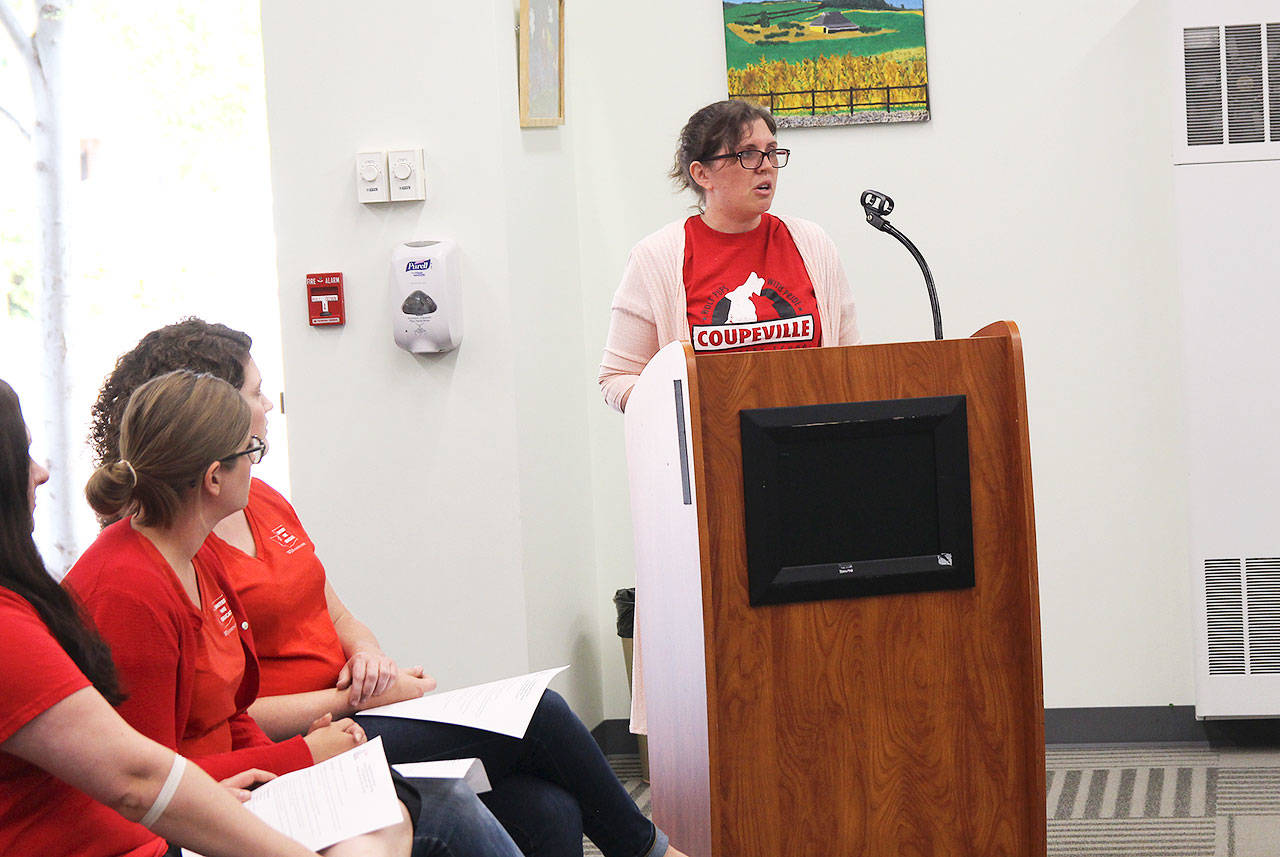Parents and staff advocated for teacher support in the form of salary increases at the Coupeville School Board of Directors meeting Monday.
The board passed its 2018/19 budget at the meeting, but without answering the “$2.1 million question” of how new money from the state will affect staff salaries.
New laws passed by the state Legislature have changed the way in which teachers are paid and the standard salary schedule previously used by districts in the state is no longer the model.
The district is in ongoing budget negotiations with the Coupeville Education Association.
“These are life-changing settlements,” said Katja Willeford, a teacher and co-president of Coupeville Education Association. “They change the lives of teachers who were told, often teasingly as I was, that becoming an educator was like taking a vow of poverty.”
Willeford urged the board to use the new salary schedule proposed by the union during bargaining meetings. Business Manager Denise Peet presented information about the new state law and its impact on the district budget to a full room, in which the main topic was how the $2.1 million given to the state as a result of the legislation will be used.
Parents of a former and current students spoke about the importance of supporting teachers by providing “fair wages.”
“As community members who are also parents, tax payers, and voters,” said Sherry Phay, “when you’re at the negotiation table, we’re asking for you to represent us in conveying the message that we respect and value our teachers by supporting a fair and equitable wage.”
Peet said the standard allocation from the state for the 2018/19 school year will average $73,042 per staff member— slightly lower than the $74,127 average salary for Coupeville teachers (CHECK).
“If we don’t do any raises at all, the state allocation is there,” Peet told the board.
Lisley Dix, co-president of the Coupeville Education, said certificated Coupeville teachers have been paid beyond the minimum the state provided using TRI (time, responsibility and incentive) money. With a changing salary model, TRI won’t be used as heavily to supplement teacher pay.
“Why now is it that we’re not worth being a bump above what would be considered baseline?” Dix asked the board.
Board members expressed their support for teachers, both historically as a district and moving forward. Member Brent Stevens said he didn’t want the tone from the teachers to be adversarial.
“Let’s not get into finger pointing on either side about who values who,” he said. “… We need to make sure that we’re not bringing this to a knock down drag out fight.”
Superintendent Steve King said all of the $2.1 million for salaries will be allocated to staff, but it will be dispersed among certificated and classified staff, which are employees that aren’t teachers or administrators.




